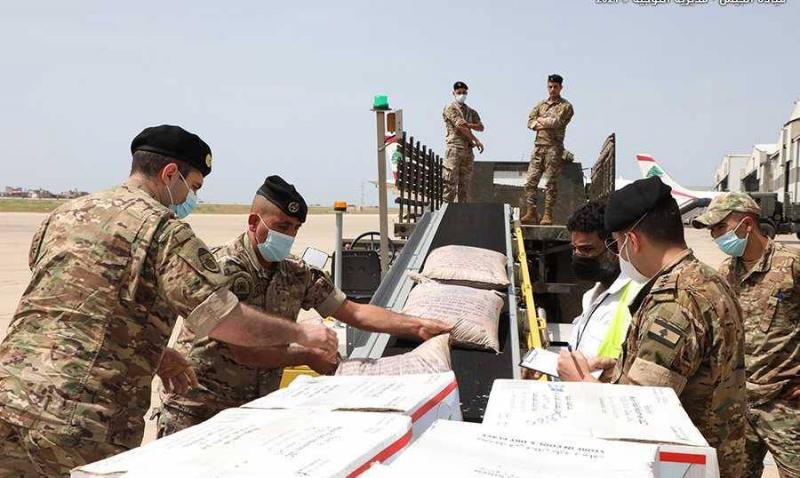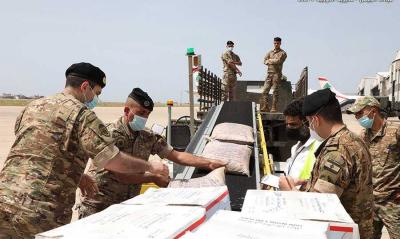The recent parliamentary elections have not positively impacted the deepening monetary, economic, and social crisis. The day after the election, the dollar price rose again, exceeding 30,000 Lebanese pounds, resulting in increased prices for all consumer goods, including basic food items and fuels. Consequently, salaries are no longer sufficient to secure "a living," affecting all citizens, including public sector employees, both civilian and military.
While the military institution remains the only public entity that still enjoys the trust of the Lebanese people and continues to fulfill its duties with dedication and commitment, the army's continued capacity and cohesion cannot be maintained without essential logistical needs. Soldiers are human beings, and military missions require at least fuels and essential means of transport and deployment to maintain security and stability across the 10,452 square kilometers of the country.
After successfully "protecting" the parliamentary election process and continuing to maintain security from the borders to the interior, the army is sounding the "alarm." The tragic situation has exceeded the limits of endurance and continuity. Although the army's leadership is managing to maintain its personnel cohesion and is striving to strengthen the resilience of its soldiers through various means and assistance, how can an army perform its mission without food and fuel?
Despite the Lebanese army's determination to carry out all its duties steadfastly and with the guidance of its leadership, the state of the military institution has become difficult and concerning. The financial support it receives is limited, and there is no direct financial assistance for its personnel. While the leadership had previously requested financial aid for soldiers from international entities, this matter remains under review. Currently, U.S. support comes in the form of weapons and essentials, and the institution receives some external assistance to secure fuels and spare parts. However, these aids, while significant, remain insufficient to meet the required needs.
Additionally, the institution relies on donations from Lebanese, both residing in the country and abroad, who have faith in the army. Recognizing that it can only provide healthcare to its soldiers, the leadership allocates these donations entirely to the improvement and advancement of medical care that is befitting for soldiers. To further support military personnel, the military institution purchased 160 buses through external assistance, putting them into service for operational units, whereas joint transport had previously been secured for fixed units. The army will continue to purchase additional buses in the upcoming phase. The army also receives food aid from some countries, with the only stable monthly assistance coming from Qatar.
While the army leadership continues to seek more resources for the military institution, the most urgent needs now are food, fuel, and spare parts. This is crucial for the leadership, which prioritizes maintaining the army's resilience and cohesion to navigate this phase, especially as the country is heading toward important deadlines, with concerns about disorder looming. Hence, "the leadership's sole concern is to keep the army intact to ensure the country remains intact; if the army weakens, there will be a significant problem, and without a cohesive army, there is no cohesive nation." Based on this reality, the army leadership behaves wisely to remain controlled and capable of enduring.
Despite all these circumstances and needs, the number of defecting soldiers remains very limited and acceptable in light of the general situation, according to military sources. Notably, many of these soldiers are applying for clemency to return to service as they see no refuge other than the military institution. However, the main problem moving forward is that the economic situation will increasingly negatively impact the army. Despite the steadfast will of the "guardian of the nation" to continue its national duties at all levels, the military institution faces the "challenge of continuity" and needs urgent logistical support concerning food and fuel. Given the very limited budget, the army may encounter a significant problem regarding the loss of food and fuel.




